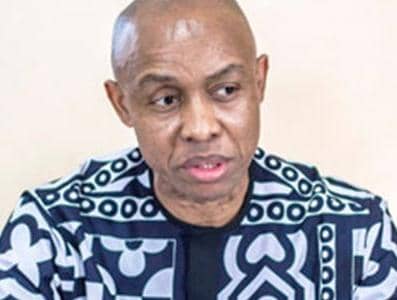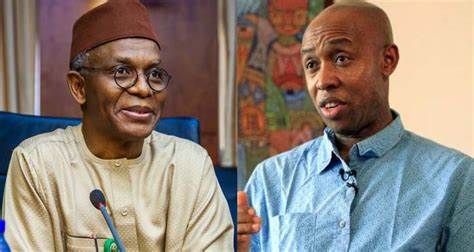By Chidi Anselm Odinkalu
IN Nigeria, history tends to repeat itself with unerring accuracy and in tiresome syntax. When he wrote his Report on the Amalgamation of Northern and Southern Nigeria and Administration in 1919, Frederick Lugard described Nigeria as an “anomaly…. of a country with aggregate revenue practically equal to its needs, but divided into two by an arbitrary line of latitude.” While one portion was fiscally viable, he suggested, the other “was dependent on a grant paid by the British taxpayer.” Through the Amalgamation in 1914, Lugard created a Customs Union in which extraction could be sustained by administering mechanisms of fiscal compensation to smooth over these disparities.
From the get-go, the invention of Nigeria was about the exploitation of resources and property. Rivers State is at the centre of these resources. Towards this goal, the powers of government have historically been mobilised. More than 111 years after the Amalgamation, this raison d’être of the Nigerian estate remains resilient. It is both evident and explicit in the machinations that have now eventuated in the declaration of a state of emergency over Rivers State.
When he addressed the country on 18 March 2025 to proclaim a state of emergency in Rivers State, Bola Ahmed Tinubu, Nigeria’s president, claimed that he acted on “security reports made available to [him]” showing “disturbing incidents of vandalization of pipelines by some militant without the governor taking any action to curtail them.” Importantly, he had not bothered to speak to the State Governor to hear his own side of the story, nor did he indicate that any humans had been injured or killed.
Security reports in such situations are provided by the State Security Service (SSS). It is currently headed as Director-General by Oluwatosin Ajayi, whose stint as State Director of Security (SDS) in Rivers State coincided with the tenure as governor of Nyesom Wike, a principal belligerent in the political conflict in the State.
As a result, the President continued, “no good and responsible President will standby and allow the grave situation to continue without taking remedial steps prescribed by the Constitution to address the situation in the state, which no doubt requires extraordinary measures to restore good governance, peace, order and security.”
These words were not new. When he moved the motion in the federal parliament on 29 May 1962 for the declaration of a state of emergency in the old Western Region, Prime Minister, Abubakar Tafawa-Balewa uttered the original version of the same sentence. After rendering his version of the events in the regional parliament in Ibadan the previous week, the Prime Minister declared: “No responsible Government of the Federation could allow an explosive situation such as that which now exists in Western Nigeria to continue without taking adequate measures to ensure that there is an early return to the Region of peace, order and good Government.”
Then in the Western Region, as today in Rivers State, there was a political dispute between a predecessor and his successor, both of them of the same party. The predecessor was Chief Obafemi Awolowo, leader of the Action Group, who had transitioned from the office of regional Premier to being leader of the Opposition in the federal parliament. His successor as Premier was Ladoke Akintola. Although both lawyers, these men had fundamental differences of both provenance and ideology. Awolowo was Ijebu from the south of Yoruba-land. Akintola, who grew up in Northern Nigeria, was from Ogbomosho in the north of Yoruba-land. Ideologically, Akintola’s politics tended towards conservative populism; Awolowo was more towards democratic socialism.
In May 1962, the National Executive Committee of the Action group resolved to request Akintola to resign as both deputy leader to Chief Awolowo in the party and as premier of the Western Region. Rival factions emerged in the party claiming a majority in the regional parliament. Akintola sought to have the parliament convened for the purpose of procuring a vote of confidence on his government. Both the regional governor and the Speaker of the parliament rebuffed his overtures. Instead, outside the parliament, some party officials led by Bola Ige, secured the signatures of a majority of elected members withdrawing support from Akintola’s administration.
The party presented these signatures to the Governor, Oba Adesoji Aderemi, then the Ooni of Ife who thereafter invited Alhaji Dauda Adegbenro to form a new government as regional Premier. Attempts to re-convene the regional parliament ended in fracas. As recalled by Chief Awolowo, “one Mr. Oke, a supporter of Chief Akintola, a Member from Ogbomosho, jumped on the desk and was running about on the desk and then lifted a chair and struck somebody on the head. That is how it started, and then thereafter one Mr. Ebubedike, the Member for Badagry, who lives in Ajeromi, took the Mace and then in an attempt to strike the Speaker with the Mace, the Mace struck the table and broke into two.”
On receiving notification of the governor’s decision removing him and designating Alhaji Adegbenro as regional premier on 21 May 1962, Akintola began proceedings at the High Court of the Western Region. The Chief Justice of the Region – they were called Chief Justice then – Samuel Okai Quashie-Idun, had acted as Chief Justice of Ghana under the government of Kwame Nkrumah. He headed to Nigeria after resigning from Ghana’s judiciary in 1958 over disagreements with the Nkrumah government in the first flush of post-colonial authoritarianism. In 1960, Quashie-Idun became Chief Justice of the Western Region in succession to Robert Yorke Hedges. As Chief Justice, he was said to enjoy the support and patronage of Premier Akintola.
The expectation of Akintola was reportedly that the Chief Justice would afford him expedited hearing and a favourable verdict, handing him under colour of law the boost he needed in this battle of his political life. Instead, Chief Justice Quashie-Idun decided to distil the legal issues and, rather than rule on them, transmitted those to the then Federal Supreme Court for decision. The case eventually travelled up to the Privy Council where Akintola lost the legal dispute. It is said that a disappointed Ladoke Akintola withdrew patronage from Quashie-Idun and their relationship never recovered. The following year, Quashie-Idun left the judiciary of the Western Region to East Africa, becoming the President of the East African Court of Appeal, where he died in 1966.
It is thought that Quashie-Idun tried, albeit unsuccessfully, to recover the relationship. In June 1963, he dismissed the action by Alhaji Adegbenro of the Action Group seeking to invalidate the appointment of Odeleye Fadahunsi as regional governor, and denied Adegbenro leave to appeal to the Federal Supreme Court.
The disagreement between Quashie-Idun and Akintola was in reality unbridgeable. As Chief Justice, he saw a legal dispute which deserved judicial dispassion. For Akintola, it was a political dispute in which the role of the judiciary was to serve as his instrument. In 1962, Quashie-Idun chose to stick with his judicial brief. Today in Nigeria, judges at the highest levels have chosen to discard judicial robes and purchase sides in the political dispute in Rivers State, becoming shamefully complicit in instrumentalizing the highest courts for a proverbial mess of political pottage.
When he addressed the country this past week, therefore, the President was not content with merely plagiarising Tafawa-Balewa; he found comfort in the partisanship of a wilful judiciary.
On 28th of February, the Supreme Court restrained the Central Bank from releasing the federal allocations of Rivers State until the State House of Assembly had passed a lawful budget. In his address declaring the state of emergency, the president said his newly appointed military administrator in Rivers State would not be able to make any laws. In effect, he could not pass a budget to implement the Supreme Court judgment.
Yet, the day after he was installed, the Central Bank released the withheld allocation to the military administrator. On the same day, the National Assembly approved the emergency proclamation on an unlikely voice vote after what was reported to be a splurge of money to sweeten that outcome. If the statutory allocation of Rivers State was used to purchase an emergency proclamation over the state, it is entirely in keeping with the project originated by Frederick Lugard to preserve Nigeria as a proposition in extractive anomaly.
A lawyer and a teacher, Odinkalu can be reached at chidi.odinkalu@tufts.edu
![]()








